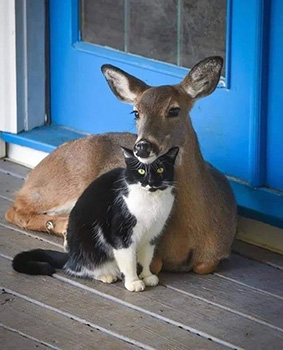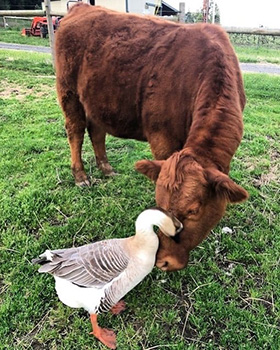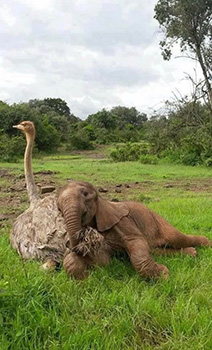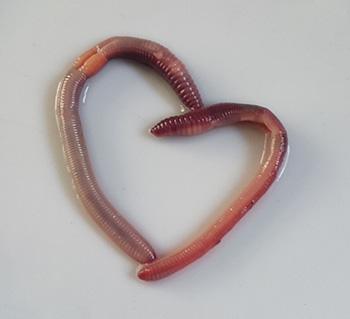For Sunday July 10, 2022
Lectionary Readings (Revised Common Lectionary, Year C)
Psalm 82 or Psalm 25:1-9
Colossians 1:1-14
Luke 10:25-37
From Our Archives
For further essays on the lectionary for this week, see the two essays by Debie Thomas, Afflicting the Comfortable and Go and Do Likewise; and two essays by Dan Clendenin, The Parable of the Good Samaritan and Remembering Romero.
Michael Fitzpatrick is a parishioner at St. Mark's Episcopal Church in Palo Alto, CA. After growing up in the rural northwest, he served over five years in the U. S. Army as a Chaplain's Assistant, including two deployments to Iraq. After completing his military service, Michael has done graduate work in literature and philosophy. He is now finishing his PhD at Stanford University.
Several people told me this past week that my faith is not helpful for on the ground everyday life. That is not an easy criticism to absorb, especially as my interlocutors were themselves followers of Christ. I confess my response in each case was an exasperated, “If our faith is not for on the ground life, then what is it for?” I mean this in earnest. I chose to follow Christ because this Christ who calls me to follow him promises life and life to the full. Surely he meant life on the ground!
 |
Often in my diocesan community I’ll hear people say, “We take the Bible seriously but not literally.” But maybe we need to take it literally too? For instance, when St. Paul reaches the climax of his argument in his letter to the parish community in Rome, he says that nothing can separate us from the love of Christ, not “trouble or hardship or persecution or famine or nakedness [i.e. exposure due to homelessness or lack of adequate clothing] or danger [i.e. threats to the body] or sword [i.e. war]” (Romans 8.35). He means these things literally, that the action of God for us in Christ is the deepest answer to those of us who suffer, say, persecution by a loss of our rights, or food insecurity, or dislocation by war. If this verse does not apply to the people of Ukraine still fighting to retain their independence from Russia, how could it apply to anyone?
Or consider Jesus’ own declaration of his life and ministry as “good news to the poor, freedom for prisoners, sight for the blind, freedom for the oppressed” (Luke 4.18, quoting Is. 61.1-2). If Jesus is not speaking about on the ground life for the impoverished, the incarcerated, the physically disabled, or those living under oppressive powers, then who is he speaking about? To reduce his profound declaration to those living in metaphorical prisons or suffering metaphorical oppression is to remove the very meaning of Jesus’ life and ministry as “good news” for everyone.
In our lectionary readings, the Psalmist describes the Righteous Judge enjoining those in earthly power to “save the weak and the orphan; defend the humble and needy; rescue the weak and the poor; deliver them from the power of the wicked” (Psalm 82.3-4). In other words, exercise our power for the sake of the most vulnerable. This is not some spiritualized text about being a nice person; it is an on the ground description of the relationship between the Holy One who is the true source of power on the earth and the mortals who serves as vice-regents answerable to the Most High.
 |
In the other Psalm option for this Sunday, the Psalmist speaks from the point of view of the vulnerable: “Let me not be humiliated, nor let my enemies triumph over me. Let none who look to you be put to shame; let the treacherous be disappointed in their schemes” (Psalm 25.1-2). These words are the outcry of someone who is facing people literally plotting either their death or exile. Yet the Psalmist believes that the life of faith is the path of deliverance from oppressive evil. “Show me your ways, O Lord, and teach me your paths,” for the true God “guides the humble in doing right and teaches the Lord’s path to the lowly.” The humble and lowly are the self-same humble and needy, weak and poor, orphan and oppressed the Righteous Judge calls all to defend. In other words, learning the Lord’s paths is the way of salvation for those of us who cannot depend on earthly powers to advocate on our behalf. “All the paths of the Lord are love and faithfulness to those who keep his covenant and testimonies,” the Psalmist concludes. Nothing could be more on the ground.
And what of Jesus’ teaching in our Gospel reading, the famous parable of the Good Neighbor? It cannot get more on the ground than lying in a ditch after an assault. Nor can Jesus speak more plainly to daily living than to instruct us on how to be a good neighbor. Yet I wonder if the familiarity of this story has caused it to lose some of its literal power, becoming overspiritualized and metaphorical for many of us. For the most piercing part of this parable is that it is supposed to be an answer to the question, “Who is my neighbor?” Jesus answers that my neighbor is whoever I find near-at-hand who is in need of mercy. Who they are is irrelevant to the fact that they are in need of the love and compassion which fills those who follow in the Lord’s path — even if they are our enemy, the co-worker who screwed us in last week’s meeting, or someone who stood on the opposite side of a protest line.
 |
I want to end with a radical suggestion about who counts as our neighbor, someone who is almost always left out of these discussions. In the spirit of Jonah 4.11, can we see the animals of our planet as our neighbors? When we go to the grocery store and we see shelves lined with meat procured through the systematic enslavement and abuse of livestock, will we walk to the far side of the road or choose to act? When we humans with our sense of entitlement blanket whole ecosystems with asphalt and concrete, displacing animals whose populations must either dwindle or live off the sustenance of human garbage bins, will we walk to the far side of the road or choose to act? When we see an animal lying on the side of the road bleeding and broken from impact with an automobile, will we walk to the other side of the road or will we stop to give aid?
In the United States alone, nearly a million animals are killed every day by automobile collisions, and road fatalities are the leading cause of vertebrate death in this country. Similar statistics exist in other nations as well; in Brazil motor vehicle death for animals is well over 1.3 million a day. Imagine if this statistic applied to our children or our elderly; we’d pass no shortage of legislation building walls to prevent road access by pedestrians, lowering speed limits, and imposing harsh penalties for drivers who cannot safely avoid obstacles on the road. Can we follow the Lord’s path and be a neighbor to the animals with whom we share this island home? Can we see them in the Righteous Judge’s injunction to “rescue the weak” and “defend the needy?” For they are both.
 |
Here’s what it has meant in my own life to be a neighbor to the animals. Years ago, Christ came to me in a vision not unlike St. Peter’s in Acts 10. In the vision, I saw a man take a small boy, pierce him with a large hook, and toss him into a lake on a line. A few moments later the man pulled up the line with a large fish on the end of it, and the boy was gone. I screamed at the Lord, “What brutality is this?!” And my Lord replied, “Is the life a worm, so scorned by everyone, despised by the people, any less precious to me?” (Cf. Psalm 22.6). I have never been able to see live-worm fishing the same. To take a creature still alive, pierce its innards, and intentionally drown it in water as a lure for another creature to eat can no longer be for me to walk in the Lord’s path as a good neighbor. Can we see the earthworm as our neighbor?
This vision led to a radical change in my life. Recognizing the horror of drowning and bound by a newfound compassion for my earthworm siblings, I have spent the past decade of my life going out during rain storms and rescuing earthworms from the rivulets of water flowing down our asphalt streets and concrete sidewalks. I do what I reasonably can, gently sifting them out of the water, lightly drying them with a paper towel, and then returning them to topsoil under plants that can serve as umbrellas. An earthworm drowning on the side of the road after other pedestrians have passed by is the neighbor who needs my mercy, who the Lord has placed on the path that I am walking.
My hope is that by sharing my story, the Redeeming God might expand the answers we give to the question, “Who is my neighbor?” Maybe someday we can be worthy of our stewardship of this earth when we live upon its surface as true neighbors with our animal friends.
A Weekly Prayer
Søren Kierkegaard (1813–1855)
Father in Heaven! Thou has loved us first, help us
never to forget that Thou art love so that this sure
conviction might triumph in our hearts over the seduction
of the world, over the inquietude of the soul, over the
anxiety for the future, over the fright of the past, over
the distress of the moment. But grant also that this
conviction might discipline our soul so that our heart
might remain faithful and sincere in the love which we
bear to all those whom Thou hast commanded us to
love as we love ourselves.Søren Kierkegaard was a Danish philosopher whose meditations, journals, and sermons were catalysts for the Christian existentialist movement. A large portion of his prayers in his journals have been edited by Perry D. LeFevre into a lovely edition with a detailed introduction called The Prayers of Kierkegaard (University of Chicago Press, 1956), from which this prayer has been taken.
Michael Fitzpatrick welcomes comments and questions via m.c.fitzpatrick@outlook.com
Image credits: (1–3) Wholesomeness.com; and (4) Earthworm Watch.





